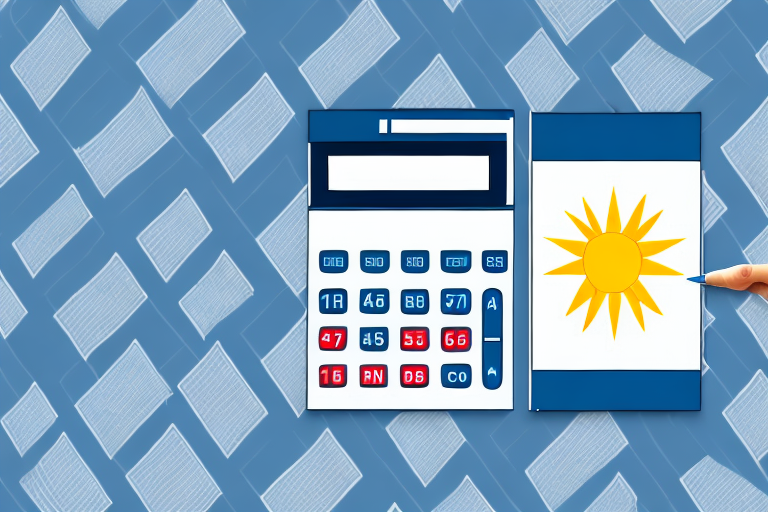Delaware, known for its favorable business laws, is a popular state for incorporating businesses. One of the requirements for businesses registered in Delaware is the payment of franchise taxes. Understanding and accurately calculating these taxes is crucial for businesses operating in the state. In this comprehensive guide, we will delve into the intricacies of Delaware’s franchise tax system and provide you with a step-by-step process for calculating your franchise taxes.
Understanding Delaware’s Franchise Tax System
Delaware’s franchise tax system is unique and may differ from that of other states. Unlike traditional income taxes, franchise taxes are imposed on the privilege of conducting business in Delaware, irrespective of the financial performance of the company. The taxes are typically based on the company’s authorized shares or assumed par value capital method.
It is important to note that Delaware’s franchise tax rates vary depending on the type and size of the business. For corporations, the tax is calculated based on the number of authorized shares, while for limited liability companies (LLCs), it is based on the number of members or the assumed par value capital method. Additionally, there are different filing deadlines for different types of businesses, so it is crucial to stay updated on the specific requirements for your company.
A Step-by-Step Guide to Calculating Delaware Franchise Taxes
Calculating Delaware franchise taxes involves a multi-step process. Here’s a detailed guide to help you navigate through it:
Step 1: Determine your company type
Delaware classifies companies into two categories: Exempt and non-exempt. Exempt companies include non-profit organizations, government entities, and entities having no physical presence in Delaware. Non-exempt companies need to pay franchise taxes.
Step 2: Calculate your total gross assets
For non-exempt companies, the next step is to determine your total gross assets. This includes the summed value of your real property, tangible assets, and intangible assets.
Step 3: Determine the applicable tax calculation method
Delaware offers two methods for calculating franchise taxes: the Authorized Shares Method and the Assumed Par Value Capital Method. The Authorized Shares Method calculates taxes based on the number of authorized shares, while the Assumed Par Value Capital Method uses a formula considering the company’s assets, number of shares, and number of employees.
Step 4: Calculate the franchise tax using the Authorized Shares Method
If you choose to use the Authorized Shares Method, you will need to determine the number of authorized shares your company has. Multiply this number by the franchise tax rate, which is currently $175 per 1,000 shares. The result will be your franchise tax liability.
Step 5: Calculate the franchise tax using the Assumed Par Value Capital Method
If you opt for the Assumed Par Value Capital Method, you will need to calculate your assumed par value capital. This is done by multiplying the company’s total gross assets by a fraction, where the numerator is the number of authorized shares and the denominator is the total number of authorized shares in the state. Multiply the assumed par value capital by the franchise tax rate, which is currently $400 per $1 million of assumed par value capital. The result will be your franchise tax liability.
Exploring the Importance of Delaware Franchise Taxes
The importance of Delaware franchise taxes goes beyond mere compliance. Paying franchise taxes ensures that your company maintains good standing with the state authorities. It also grants your company access to the numerous benefits and opportunities that Delaware offers, including a robust legal framework, competent judiciary, and business-friendly environment.
Furthermore, paying franchise taxes in Delaware can also provide your company with certain tax advantages. Delaware has a reputation for having favorable tax laws, including no state corporate income tax for companies that do not operate within the state. This can result in significant tax savings for your business.
Key Factors to Consider When Calculating Delaware Franchise Taxes
While calculating Delaware franchise taxes, several factors come into play. Some key factors to consider include the type and classification of your company, its total gross assets, and the applicable tax calculation method. Understanding these factors and their implications is essential for an accurate and efficient tax calculation process.
In addition to the factors mentioned above, it is also important to consider the timing of your tax calculation. Delaware franchise taxes are typically due on March 1st of each year, and failure to file and pay on time can result in penalties and interest charges. It is recommended to start the tax calculation process well in advance to ensure ample time for gathering necessary information and completing the required forms.
The Basics of Delaware’s Franchise Tax Calculation Method
Delaware’s franchise tax calculation method may seem complex at first, but it can be broken down into manageable components. Key components of the calculation method include determining the company’s type, calculating total gross assets, and applying the relevant tax calculation method. Familiarizing yourself with these components will enhance your understanding of the overall tax calculation process.
One important factor to consider when calculating Delaware’s franchise tax is the company’s type. Delaware classifies companies into different categories, such as corporations, limited liability companies (LLCs), and limited partnerships. Each type of company may have different tax rates and calculation methods, so it is crucial to accurately determine the company’s classification.
In addition to determining the company’s type, calculating the total gross assets is another crucial step in the franchise tax calculation process. Total gross assets include all tangible and intangible assets owned by the company, such as real estate, equipment, inventory, and intellectual property. It is important to accurately assess the value of these assets to ensure an accurate tax calculation.
Unveiling the Formula for Calculating Delaware Franchise Taxes
The formula for calculating Delaware franchise taxes may vary depending on the tax calculation method used. The Authorized Shares Method generally involves multiplying the authorized shares by a predetermined tax rate. On the other hand, the Assumed Par Value Capital Method utilizes a formula that considers the company’s assets, number of shares, and number of employees. Understanding and applying these formulas correctly is crucial for accurate tax calculations.
It is important to note that the Delaware franchise tax calculation method can have a significant impact on the amount of taxes owed. For example, the Authorized Shares Method may result in higher taxes for companies with a large number of authorized shares, while the Assumed Par Value Capital Method may be more favorable for companies with substantial assets and a smaller number of shares. Therefore, businesses should carefully evaluate their tax calculation options and consult with a tax professional to ensure compliance and optimize their tax liability.
Common Mistakes to Avoid When Calculating Delaware Franchise Taxes
Calculating Delaware franchise taxes can be a challenging task, especially for businesses unfamiliar with the state’s tax system. It’s important to be aware of common mistakes to avoid costly errors. Common mistakes include miscalculating gross assets, applying incorrect tax calculation methods, overlooking exemptions, and failing to meet filing deadlines. Taking proactive measures to minimize these mistakes will save your business from potential penalties and compliance issues.
One common mistake to avoid when calculating Delaware franchise taxes is miscalculating gross assets. It is crucial to accurately determine the value of your business’s assets, as this directly affects the tax liability. Failing to include all relevant assets or incorrectly valuing them can result in underpayment or overpayment of taxes.
Another mistake to be cautious of is applying incorrect tax calculation methods. Delaware has specific guidelines for calculating franchise taxes based on different business structures. Using the wrong method can lead to inaccurate tax assessments and potential penalties. It is essential to thoroughly understand the applicable tax calculation method for your business.
Navigating the Complexity of Delaware’s Franchise Tax Structure
Delaware’s franchise tax structure can be intricate, especially for businesses with unique circumstances. Complicated scenarios, such as multi-state operations, mergers, acquisitions, or changes in company structure, introduce additional complexities to the tax calculation process. Engaging professional advice and leveraging expert resources can help you navigate through these challenges and ensure accurate and compliant franchise tax calculations.
Tips and Tricks for Streamlining Your Delaware Franchise Tax Calculation Process
Streamlining your Delaware franchise tax calculation process can save your company valuable time and resources. Adopting efficient record-keeping practices, utilizing specialized tax software, and staying organized with compliance requirements are some proven tips and tricks to improve the efficiency of your tax calculation process. Continuous improvement and adapting best practices will help streamline your tax process year after year.
An In-Depth Look at the Components of Delaware Franchise Tax Calculation
A comprehensive understanding of the components involved in Delaware franchise tax calculation is crucial for accurate calculations. The components include your company’s type, total gross assets, authorized shares, par value, and applicable tax calculation method. By diving deep into each component and clarifying the associated calculations, you will be better equipped to navigate the complex process of determining your franchise tax obligations.
Demystifying the Different Types of Delaware Franchise Taxes
Delaware imposes different types of franchise taxes, depending on the classification of your company. Understanding the distinctions between the different taxes, such as the filing fee tax and the annual Delaware franchise tax, is essential for accurate tax planning and compliance. Familiarize yourself with the different tax types to ensure you meet all your tax obligations as a Delaware business.
Essential Resources for Accurately Calculating Delaware Franchise Taxes
Accurately calculating Delaware franchise taxes requires access to reliable resources and information. Delaware’s Division of Corporations website provides valuable guidance, including tax calculators, forms, and informational resources. Additionally, professional tax advisors specializing in Delaware franchise taxes can offer expert advice and assistance throughout the tax calculation process.
Understanding the Purpose and Impact of Delaware’s Franchise Tax System
Understanding the purpose and impact of Delaware’s franchise tax system will provide valuable context to your tax calculations. The purpose of these taxes is to generate revenue for the state, while the impact extends to various aspects, such as the funding of government services, maintaining business-friendly policies, and sustaining Delaware’s reputation as a premier business destination. Recognizing the broader implications will enable you to appreciate the significance of your tax obligations.
How to Determine Your Business Entity’s Eligibility for Delaware’s Franchise Taxation
Determining your business entity’s eligibility for Delaware’s franchise taxation is an essential step in calculating your franchise taxes accurately. Consulting Delaware’s Division of Corporations guidelines will help you determine whether your company falls under the exempt or non-exempt category. Properly classifying your entity ensures compliance with Delaware’s taxation rules and prevents unnecessary penalties.
By following these comprehensive guidelines, you will gain a thorough understanding of Delaware franchise taxes and be equipped with the knowledge necessary for accurate tax calculations. Remember, staying informed, implementing best practices, and seeking expert advice when needed are key to successfully complying with Delaware’s franchise tax system.




